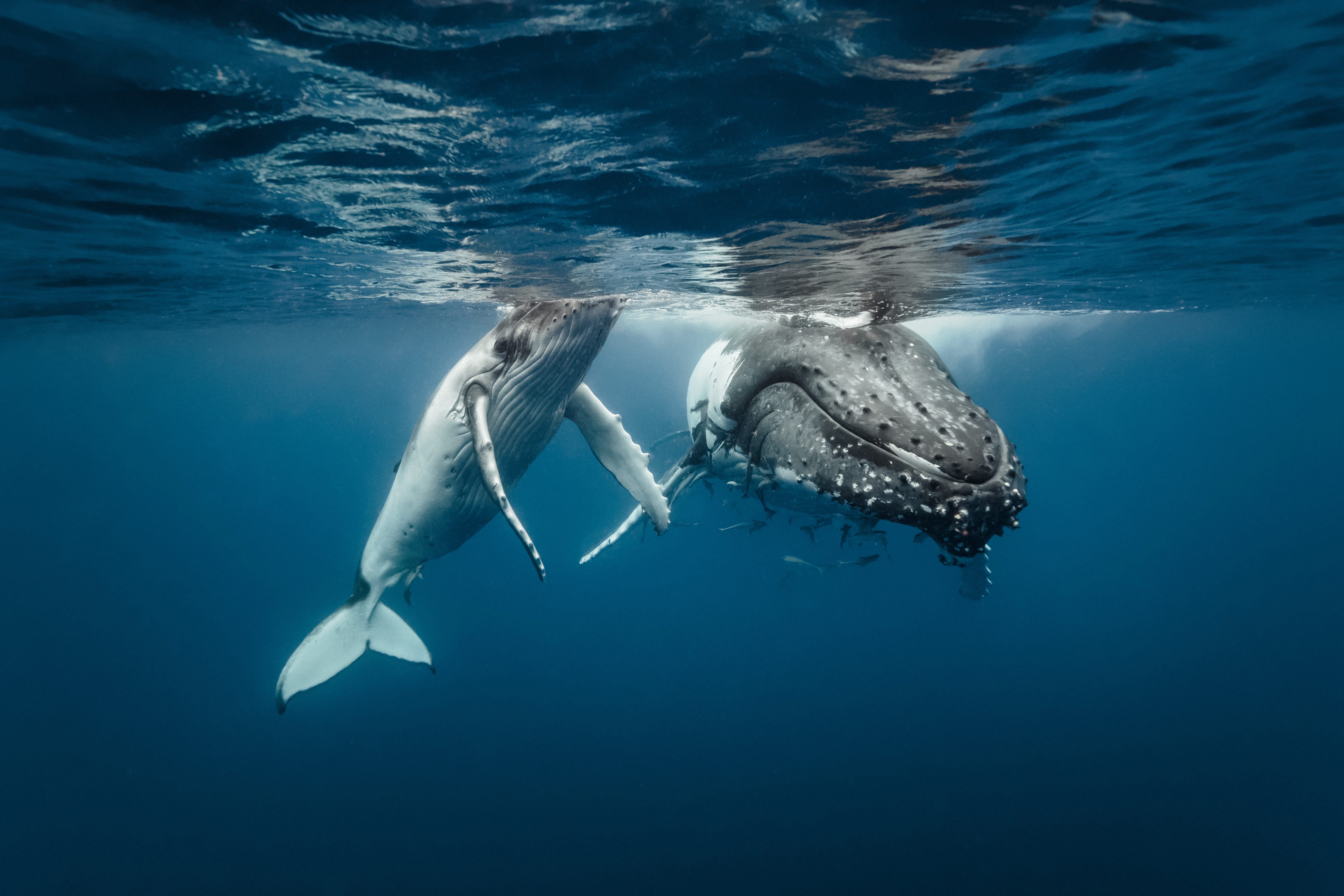Humpback Whales Plagiarize the Tunes of Other Whales (Even Oceans Away)

Humpback whales (Megaptera novaeangliae) aren't just talented singers, they learn and steal each other's songs. And, according to a new study, they can pull off those musical thefts even when there are whole continents separating them from their targets.
An international team of researchers analyzed recordings of male humpbacks singing in the waters around Madagascar and Gabon, populations separated by the entire landmass of Africa. They broke down those songs into units (individual sounds, like a moan or a burble), phrases (arrangements of units) and themes (complete songs, composed of standard phrases). They found that between 2001 and 2005, the whales in the two populations appeared to lift ideas and whole songs out of one another's' songbooks, and repeat them in their home waters.
Whale researchers already knew that different breeding populations of humpbacks in the same ocean frequently took musical ideas from one another. But, in a paper published Nov. 28, 2018, in the journal Royal Society Open Science, the authors of this study said this was the first known example of song mixing from one ocean basin to another. [In Photos: Tracking Humpback Whales]
The whales likely learned one another's' songs while traveling to hunt for food, the researchers wrote. And the acoustic study backs up genetic data suggesting the populations from Madagascar and Gabon had come into contact with one another — enough so that they'd produced babies.
Whales across the Southern Hemisphere seem to share some cultural links, the researchers added, but the Madagascar and Gabon populations appear unusually tightly linked.
"We still know little about song learning and transmission in humpback whales," they wrote in the paper, "but it has been suggested that song revolutions may occur when there are a 'threshold' number of males singing the new song type, which then instigates song change within surrounding males, eventually spreading throughout the population."
Whales on two different sides of Africa might be more able than other separated groups to share songs in this way, they wrote, because the whales meet at the "relatively narrow" tip of the continent. Songs could pass back and forth between populations looking for krill down there, then move north as the whales head home.
Sign up for the Live Science daily newsletter now
Get the world’s most fascinating discoveries delivered straight to your inbox.
- Video: Humpback Whales Sing Their Tunes
- Whale Album: Giants of the Deep
- Big Miracle: The Real Rescue in Images
Originally published on Live Science.










